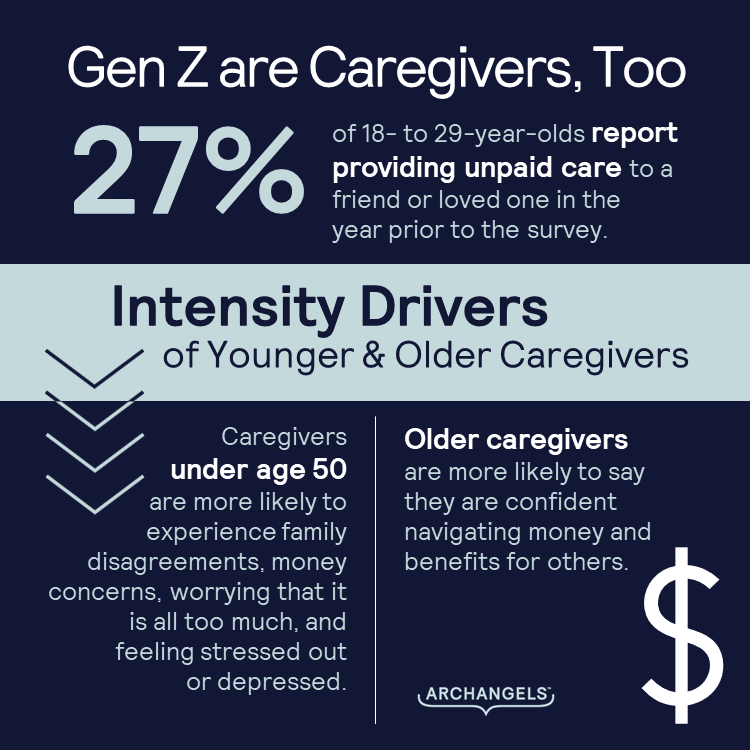
Kat McGowan and NPR asked people: “How did caregiving change you? How do you cope with the hard parts? What have you learned that you’d like to share with others?” I was among 600+ people who answered and now their Caregiver’s Survival Guide is up — and it’s wonderful.
Here’s a quote I felt in my chest:
“I expected too much from my five siblings and thought we were closer and more supportive of one another. I’ve learned that family is bigger than biological relationships. Some of my close friends are more interested and helpful than siblings who I thought would keep in contact with our mother.” – Susan Nagele, caring for her mother with dementia in Urbana, Ill.
The report that ARCHANGELS, SSRS, and I recently released shows that 40% of caregivers experience family disagreements related to caregiving. Those under age 50 are more likely than older caregivers to report family disagreements.
Others shared strategies for asking for and getting help. Here’s what I wrote:
“Create a Care Map. It’s literally a hand-drawn map of all the people who surround your loved one, both physically (neighbors, doctors, close friends, plumber, etc) and emotionally (far-off relatives and friends who can call and make him laugh). Get everyone’s contact information and keep that handy.”
Check out this free, self-guided tutorial if you would like to create your own Care Map.
Learn these magic words: “It is not safe for my loved one to return home.”
“If a loved one is hospitalized and they want to discharge them sooner than they are physically able to go home, stand your ground and tell staff you don’t feel safe and it would be in the best interest of the loved one to get more rehab before going home. If your loved one falls at home, the local fire department can be called to come do a ‘lift assist’ to help you. Don’t try to do it yourself — it could injure you and them.” – Kris Arnlund, caring for her husband in Orangevale, CA
And I appreciated this poignant reminder:
“Try not to focus on who your loved one was. Be present with them as they are today.” – Jeff Turk, caring for his mother Austin, TX
Your turn: What advice would YOU give to someone facing a caregiving journey like yours?
Image: A graphic created by SSRS for our report, Caregiving in America.
As I age and see my lifelong peers start to decline, this brings tears to my eyes. Thank you again.
Question: what HAPPENS when you stand your ground and tell the hospital it’s not safe for my father to be sent home? The forces pushing for discharge can be economic, and that’s a spine-stiffener for some hospitals.
My father didn’t have dementia but I’ll never forget a hospitalization during his declining years. One Monday morning an obviously well trained team of new people showed up in his room, alert and standing nearly at attention, ready to swing into action. “Hallelujah,” I thought – “the grown-ups have arrived!” And guess who the crack team turned out to be? The discharge squad, because Dad had reached the max number of days allowed by his insurance.